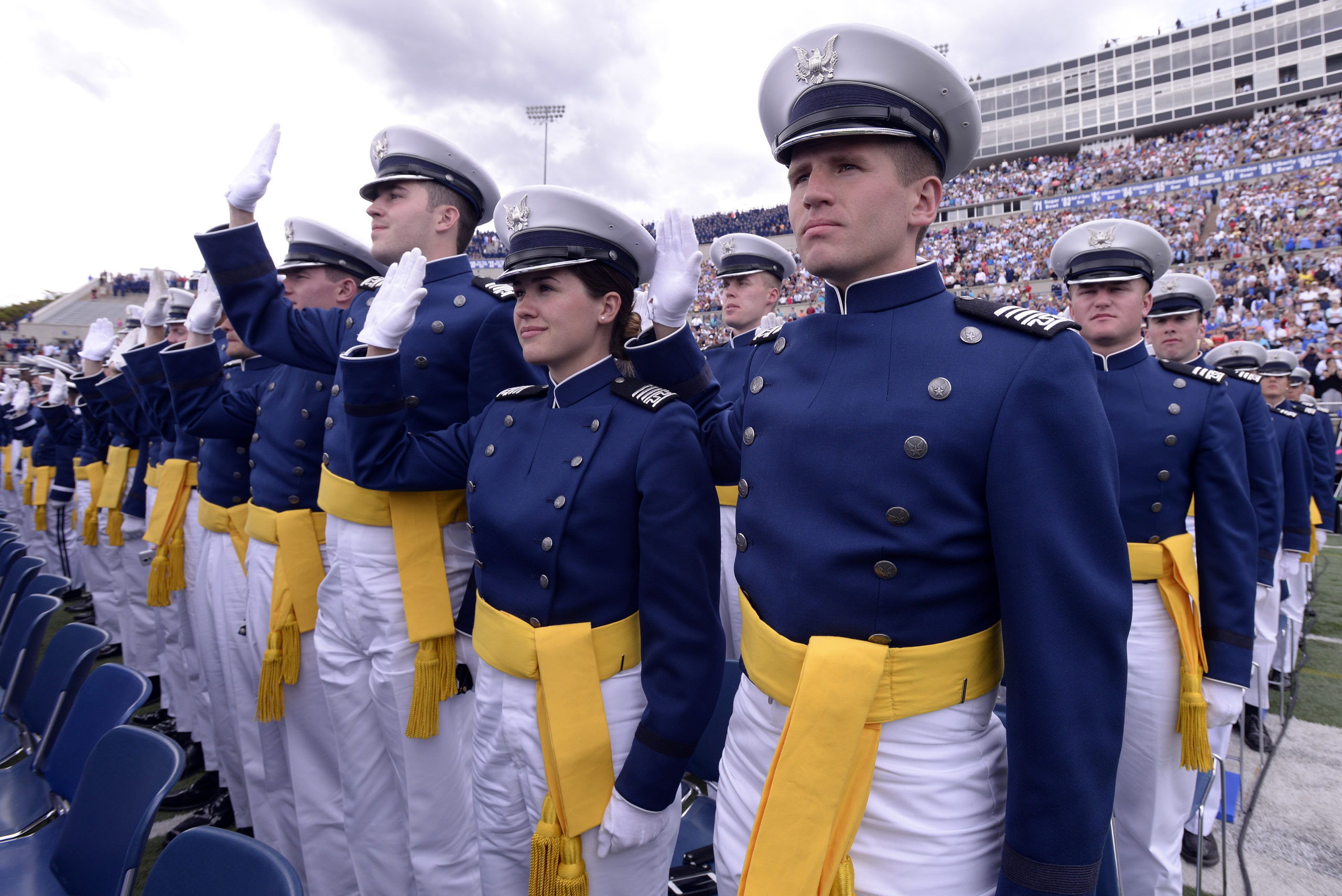
UPDATE:
In a rare interview with NPR that aired Monday, Joint Chiefs Chairman Gen. Mark Milley reaffirmed in no uncertain terms that the military leadership’s most sacred duty is to support and defend the Constitution of the United States, not to protect or coddle any one person – not even the commander in chief.
“This isn’t the first time that someone has suggested that there might be a contested election,” Milley said. “And if there is, it’ll be handled appropriately by the courts and by the U.S. Congress. There’s no role for the U.S. military in determining the outcome of a U.S. election. Zero. There is no role there.”
Original Post:
The history of the military oath of enlistment and the oath of office – the latter for commissioned officers — goes back as far as June 1775 when the Continental Army established the enlisted oath and to October 1776 when the Continental Congress passed the first oath of office.
Since then, there have been several revisions to both oaths, but especially to the oath of office.
The most significant difference between the two oaths as they are worded today is the fact that the current oath of enlistment reads:
I, _____, do solemnly swear (or affirm) that I will support and defend the Constitution of the United States against all enemies, foreign and domestic; that I will bear true faith and allegiance to the same; and that I will obey the orders of the President of the United States and the orders of the officers appointed over me, according to regulations and the Uniform Code of Military Justice. So help me God.
In the oath of office, however, the prospective officer “only” solemnly swears (or affirms) that he (or she) “will support and defend the Constitution of the United States against all enemies, foreign and domestic…”
It is noteworthy that “…I will obey the orders of the President of the United States and the orders of the officers appointed over me…” is not part of the oath of office.
It should also be noted that the oath of enlistment “merely” commits the enlistee to obey “the orders” and says nothing about lawful or unlawful orders.
Numerous authoritative legal treatises, papers and opinions have been written and given on both subjects.
Cases have been tried on the legality of issuing “unlawful orders” and whether subordinates can refuse to carry out such orders. The My Lai massacre and the Abu Ghraib and related torture cases immediately come to mind.
Similarly, much has been written on the obligation of commissioned officers to “only” obey the Constitution. Some scholars opine that “the Constitution” implicitly includes the president, the government, the flag…
One writer believes that an officer’s allegiance to the Constitution “ensures no single branch or person gains too much power and becomes corrupted. By swearing allegiance to a set of ideals and laws, our military is not bound by the orders of a single person, but are dedicated to the defense of the people and their way of life.”
The quote above comes from a July 2015 writing by then-Marine 2nd Lt. Marco Valenzuela, who presciently added:
Officers, especially at higher ranks, have a unique position of authority and influence within the organization that could be taken advantage of for political gain. Swearing loyalty to the Constitution instead of the president or any other person means that officials cannot manipulate officers in order to gain control over the military and become dictators.
Today, five years later, we have a president who has consistently defied civil-military norms, who has threatened to send active-duty troops onto American streets to quell civil unrest, who has refused to commit to a peaceful transfer of power should he lose this November and who has raised the specter of ordering “American troops into any chaos around the coming elections.”
It has come to the point where “[a] group of lawyers is offering advice to military and National Guard members who worry they may be given unlawful orders if deployed during protests or disputes over next month’s elections.”
The advice is being offered by The Orders Project; a group formed to answer questions as to the legality of orders military personnel receive.
It is a sad state of affairs for our nation when a group of lawyers has to be established to advice our military “of their rights and responsibilities before taking any action that might expose them to criminal prosecution or adverse personnel actions.”
But it is encouraging that high level military have already expressed that they will do all they can to keep the military out of the elections.
Gen. Mark A. Milley, the chairman of the Joint Chiefs of Staff, told House lawmakers in August:
I believe deeply in the principle of an apolitical U.S. military…In the event of a dispute over some aspect of the elections, by law, U.S. courts and the U.S. Congress are required to resolve any disputes, not the U.S. military. I foresee no role for the U.S. armed forces in this process.
It is also a blessing that, in their oath of office, military officers swear to “support and defend the Constitution…”
Any orders subverting the Constitution should thus never have to make their way to our enlisted men and women, relieving them from the horrible burden of having to decide whether an order is lawful or unlawful and rendering lawyers’ advice unnecessary…as it should be in a Democracy.
















